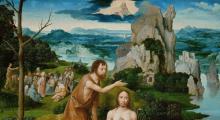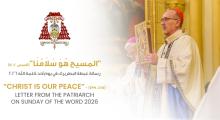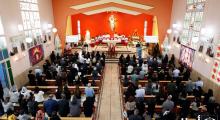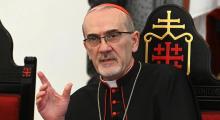Issued by the Catholic Center for Studies and Media - Jordan. Editor-in-chief Fr. Rif'at Bader - موقع أبونا abouna.org
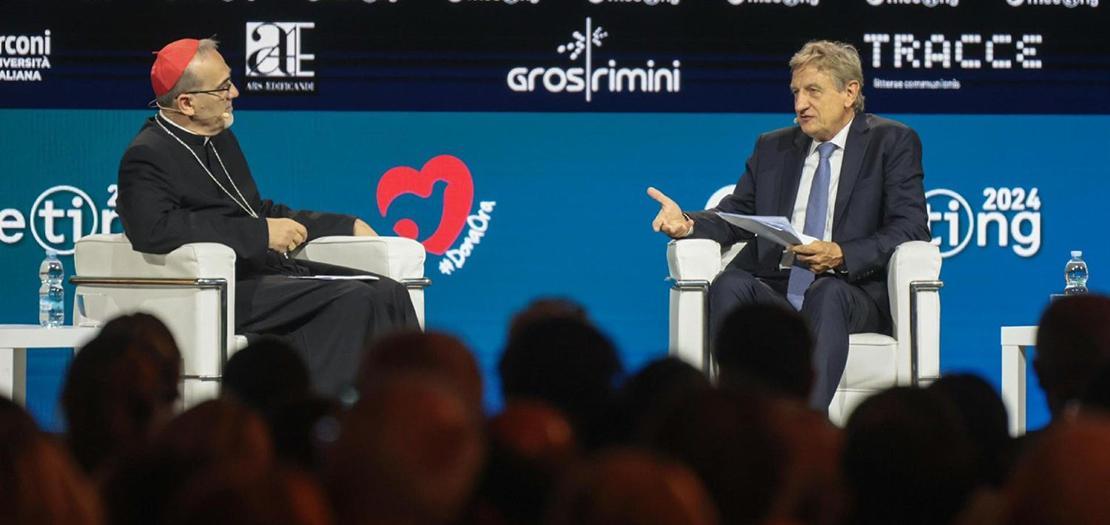
“We cannot talk about peace at this moment.” These words of Cardinal Pierbattista Pizzaballa, the Latin Patriarch of Jerusalem, clearly illustrate the present situation experienced in the Holy Land with the conflict between Hamas and Israel still ongoing after over 10 months.
Speaking to Vatican Media before the opening of the Rimini Meeting - which he inaugurated with a conference entitled: "A presence for Peace" - the Patriarch underlines the need to "work for a ceasefire and suspend the military operations to begin a healing process, to build trust with each other.”
“The path (for peace) is there - the Italian-born Cardinal stated - but there is no desire to follow it at an institutional level. It requires political and religious leadership which is in crisis”. In this context, he remarked that it is important to do everything possible even starting from the bottom.
“Small hopes”
Hope is a word that is needed at this moment but, as Cardinal Pizzaballa said, we must not confuse the meaning of words. “Hope - he noted - does not mean that things are about to end: the prospects are not good in the short term. Hope is an interior attitude that enables us to see with the eyes of the Spirit what human eyes cannot not see."
Indeed, “small hopes” animate the local Church, engaged in Gaza and the West Bank in supporting the small community of around 600 of the faithful with the distribution of food. The Latin Patriarch of Jerusalem recalled the commitment to open clinics, to reopen a school that has been closed for a year, and restart the dynamics of "normal" relationships, “which help," he said, "to escape from a cloak of oppression to create job opportunities, even if they are lacking."
Peace is a culture
Concluding his interview, Cardinal Pizzaballa recalled that everyone can do something to foster peace. “Peace is a culture, it is not something that one has to do, it is politics, it is education, it is the commitment of the media, it is working in all aspects of life, in a globalized world where no one is an island. Peace is a culture."
The current negotiations are the last train
During the opening conference he held on Tuesday along with the President of Rimini Meeting Foundation Bernard Scholz Foundation, Cardinal Pizzaballa recounted his 35 years in the Holy Land and his experience of interreligious dialogue. Referring to the latest developments, he confirmed that the current negotiations represent “a decisive and crucial moment”. “War will end and I hope that the negotiations will resolve some problems: I have my doubts, but this is the last train".
The Patriarch of Jerusalem did not dismiss the risk of the conflict further “degenerating”: “The language of mutual rejection," he said, "has become a daily matter that is breathed in by the media, and it is something truly dramatic.
"In this situation, he noted, we must pray, especially to counter those attitudes of hatred, mistrust, and deep contempt" that are felt. In rebuilding tomorrow, the commitment of all will be necessary.
Cardinal Pizzaballa underlined the need to pray above all to counteract "those attitudes of hatred, mistrust and profound contempt" that are felt. Rebuilding tomorrow will require everyone's commitment.
Regarding interreligious dialogue, the Patriarch admitted that it is difficult at this particular moment. "This situation – he explained – has created a divide. There are no public meetings and at the institutional level we struggle to talk to each other. We are unable to meet".
Concluding, Cardinal Pizzaballa called for a dialogue that is more between communities rather than elites. Religious leaders, , he said, have a great responsibility to create communities that do not close themselves but instead lift their gaze.


